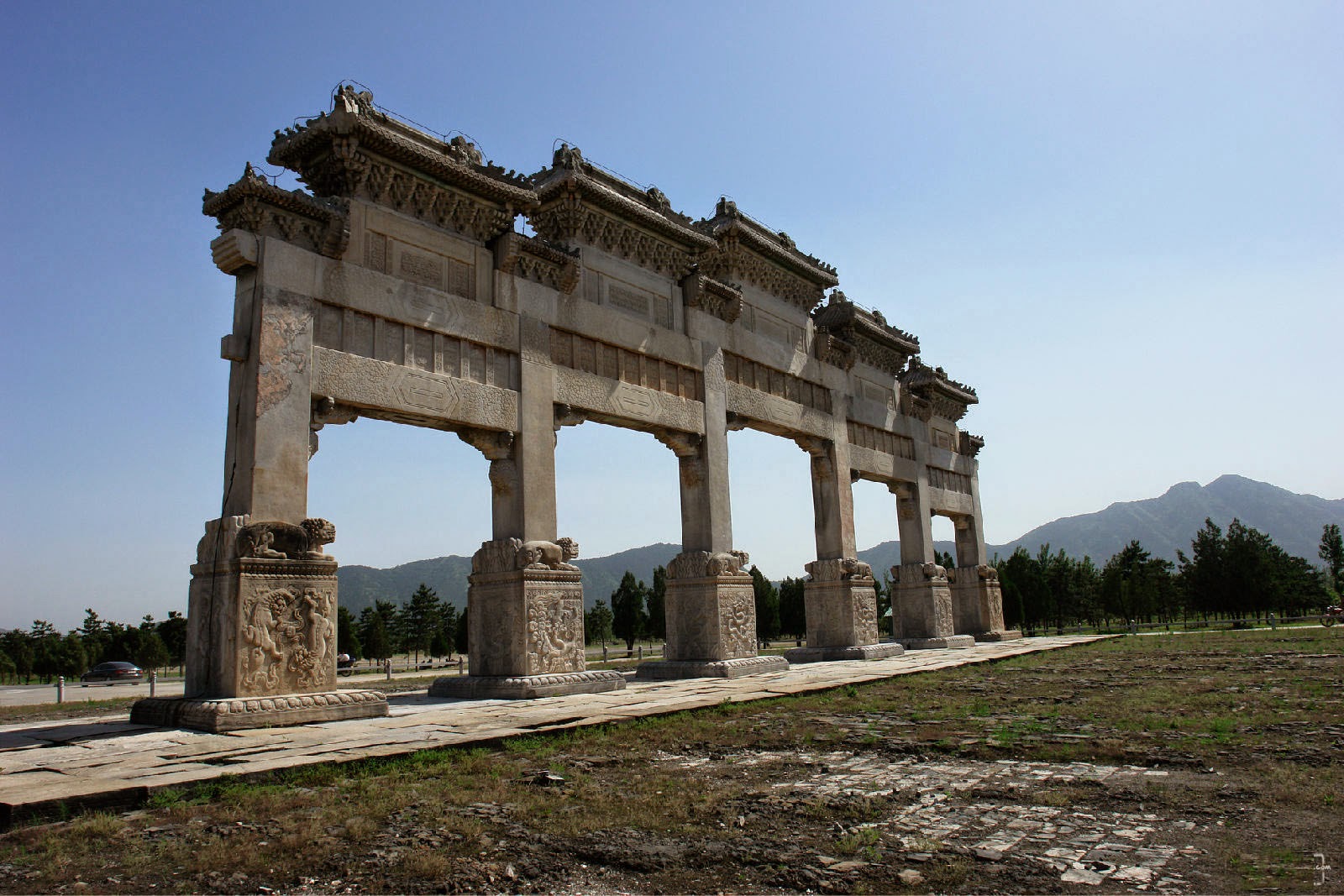The Eastern Qing
Tombs locate in Hebei
Province China , it is located along Changrui
Mountain in the west of Malanyu Town ,
Zunhua County , Hebei Changrui Mountain
Of all, Xiaoling
is the biggest and most elaborate, standing as the focal point of the entire
structure. The grandeur of this tomb may be attributed to its having been the
first sepulcher constructed for a member of the royal family of the Qing
Dynasty, so the builders hoped to set the tone for a prosperous future.
Crossing through the Great Red Gate, you can see buildings of different sizes,
all with roofs of yellow glazed tile, connected by the brick paths or 'sacred
ways' that converge in the area of Xiaoling.
From the stone
tablets in the southern part of tombs district to the mortuary site of Xiaoling
Tomb, there is a 5 km long
holy path, along which the solemn grand elegant buildings, such as Big Red
Gate, Saint Devotions Stele Pavilion, stone figures, Ling En Gate, Ling En
Palace and Square Pavilion, stand in a good order.
Yuling Tomb for
Emperor Qianlong is a treasure house of carving art. Except the floor, the
walls and gates of tomb are made of stone, on which various pictures are
carved, such as Eight Bodhisattvas, Four Kings, Five Dhyani Buddha, Five
Sacrificial Offerings, Eight Treasures, and the Buddha Nom in Sanskrit and
Tibetan characters. These unique pictures, with clear fluent lines and vivid
forms making an integrated mass, are placed in good order.
East Dongling Tomb
for Empress Cixi is also quite unique. The balustrades around Ling En Palace
are carved with the pictures of the dragon and phoenix as well as the water and
cloud waves. The stone stair in front of palace, a masterwork of outworking
carving, is carved with a vivid picture of a dragon and a phoenix playing with
a ball (the dragon is below the phoenix).
Just because of
their indisputable charm and their great historical, artistic and scientific
value, the Eastern Qing Tombs was inscribed into the World Heritage list on
Nov, 30, 2000, and was appraised as AAAA scenic spot by the state Travel Bureau
in Jan. 2001. Many of the minor ones are also worth visiting as you
learn about Chinese culture while enjoying the beauty of the area.
For more information, please visit http://top-chinatour.com
For more information, please visit http://top-chinatour.com




No comments:
Post a Comment